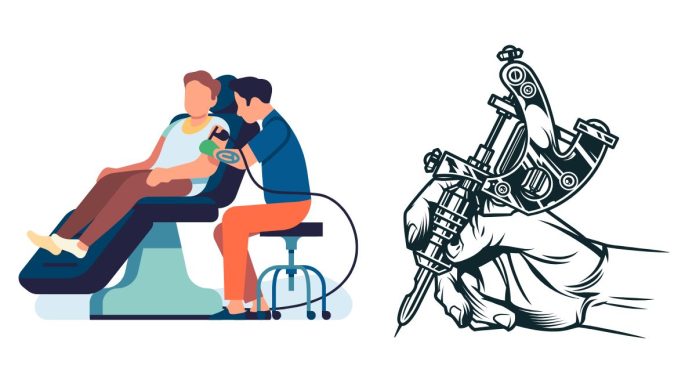How Much Do Tattoo Artists Make?
Tattoo artists’ salaries can vary widely depending on several factors such as experience, location, reputation, and the type of clientele they serve. Whether you’re considering becoming a tattoo artist or just curious about the earnings in this creative profession, here’s a breakdown of how much tattoo artists typically make.
Average Salary of a Tattoo Artist
On average, tattoo artists in the U.S. make anywhere between $30,000 and $100,000 per year. However, the salary range can be quite large depending on various factors:
- Entry-Level Tattoo Artists: Those who are just starting out, often as apprentices or with less experience, may earn between $20,000 and $40,000 annually. They may not yet have a large client base and might charge lower rates to gain experience and build a portfolio.
- Experienced Tattoo Artists: With more experience (around 5-10 years or more), artists can make between $40,000 to $75,000 or more. These artists typically have a solid reputation, a loyal client base, and may be able to charge higher rates for their work.
- Top Earning Tattoo Artists: Highly skilled and in-demand artists, especially those who have built a strong brand and following, can make $100,000 or more annually. Some top tattoo artists can charge hundreds or even thousands of dollars per hour for their artwork, leading to much higher annual earnings.
Factors That Impact Earnings
- Location: The city or country where a tattoo artist works plays a significant role in how much they earn. Tattoo artists in large, high-demand cities (like New York, Los Angeles, or Miami) tend to earn more than those working in smaller towns or rural areas.
- Experience and Reputation: Artists who have been in the industry for many years, who have developed a unique style, or who have a strong social media presence can command higher prices for their work.
- Studio vs. Freelance: Tattoo artists who work in a studio typically earn a salary, a commission, or a combination of both. Some artists work independently as freelancers, giving them more control over their rates and the potential for higher earnings, but it also comes with the responsibility of managing their business, marketing, and expenses.
- Clientele and Specialty: Tattoo artists who specialize in intricate designs, custom artwork, or popular styles (such as realistic portraits or black-and-grey tattoos) may charge more. Additionally, working with high-profile clients or in-demand styles can increase an artist’s earning potential.
- Commission Structure: Many tattoo artists work on a commission basis, where they keep a percentage of the money from each tattoo. The commission split can vary, with studio owners typically taking anywhere from 30% to 60% of the total fee, leaving the artist with the rest.
Freelance vs. Working at a Studio
- Freelance Tattoo Artists: Freelancers have the potential to make more money, as they can set their own prices and work with multiple clients. However, they are responsible for covering their own costs, including tools, supplies, and rent (if they rent space at a studio).
- Studio Tattoo Artists: Artists working at a tattoo studio generally have a more stable income, but they may take home a lower percentage of each tattoo fee due to studio commissions. However, they may benefit from the studio’s marketing, client base, and overall exposure.
Income Variability and Challenges
While tattoo artists have the potential to earn good money, it’s important to remember that the income can be inconsistent, especially in the early years. Factors like economic downturns, seasonality, and personal health can impact an artist’s earnings. Many tattoo artists also rely on tips from clients, which can add a significant amount to their take-home pay.
Conclusion
Tattoo artists can make a wide range of salaries, from around $30,000 a year for beginners to well over $100,000 a year for top-tier professionals. Success in this profession often depends on a combination of skill, experience, location, and the ability to market oneself effectively. While tattoo artistry offers creative freedom and the opportunity to build a personal brand, it requires dedication, hard work, and a strong portfolio to reach higher earning potential.


